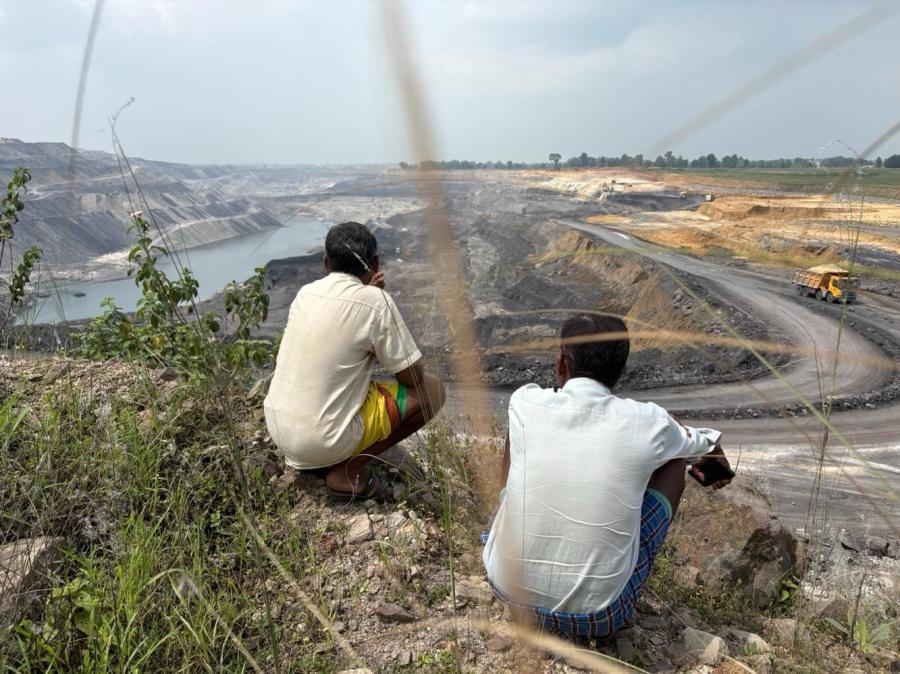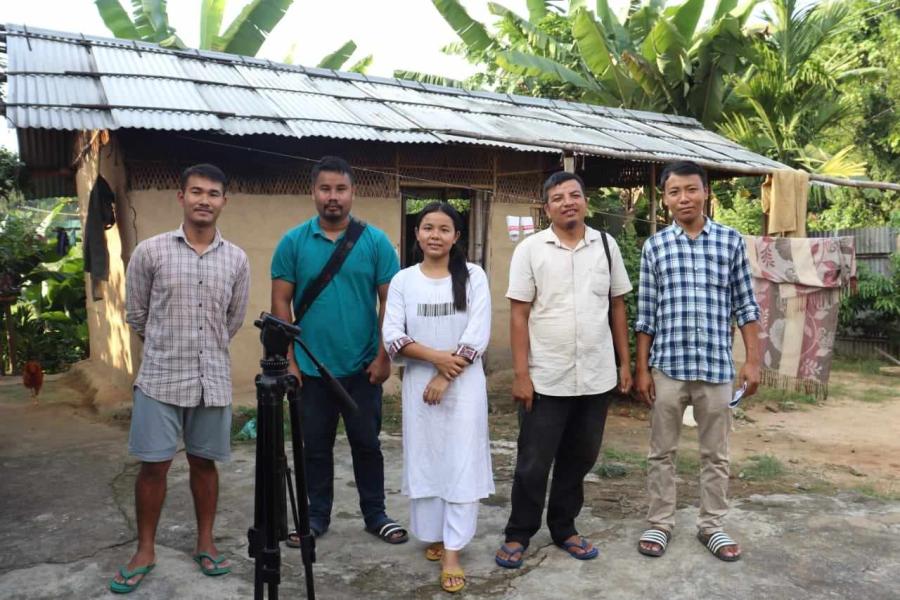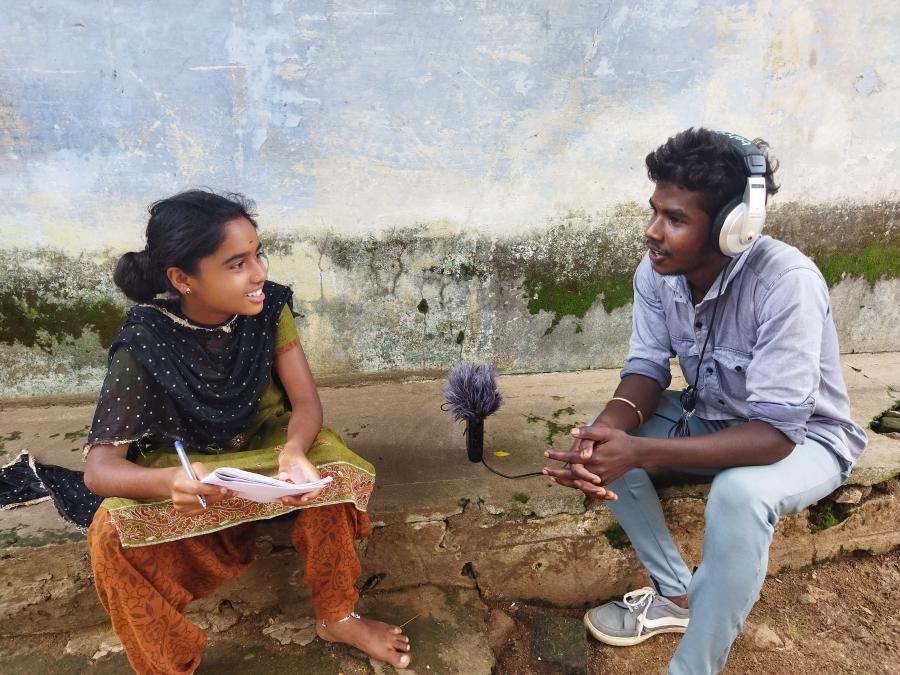
By Dev Kumar Sunuwar (Koĩts-Sunuwar, CS Staff)
On November 10, 2022, UN member states reviewed India’s human rights record during the 41st Session of the Universal Periodic Review, a process carried out by the UN Human Rights Council. This was India’s fourth cycle of review since 2008. The final outcome of the 41st session will be adopted by the plenary of the Human Rights Council at its 52nd regular session in March 2023.
Reviewing States commended India for the efforts made since 2017 in promoting and protecting human rights, but also heavily criticized it for failing to give specific attention to the defenders of the rights of minority communities, including Dalits (Scheduled Castes) and Adivasi (Indigenous Peoples or Scheduled Tribes), human rights activists, journalists, women’s rights defenders, and other defenders working to safeguard the rights of women and children.
The Universal Periodic Review consists of an assessment of the human rights situation of UN member states by peer states. It is considered to be an international peer review mechanism based on a periodic self-assessment by each country of its own human rights record, achievements, and challenges, further supplemented by reports from UN human rights experts, entities, treaty bodies, national human rights institutions, and civil society organizations.
During India’s recent review, issues of religious freedoms, freedom of expression, and the decline of civic spaces were featured prominently. As many as 130 States made recommendations orally to India during the review, a substantial increase from the previous cycle in 2017. UN member states asked India to protect the rights of minority groups, including their freedom of speech.
K.C Samria, Joint Secretary of the Ministry of Minority Issues, defended the government’s record with the following statement: “The Indian government has undertaken a range of measures pertaining to minority education, skills development, and social development measures with a high concentration of minority populations, including affirmative action measures and public employment, along with electoral reservations seeking to ensure access to public resources.”
He further stated that “India has amended the Scheduled Castes and Scheduled Tribes (Prevention of Atrocities) Act of 1989, effective from 2016, has created exclusive special courts and special prosecutors for offenses under Act, and has provided timely and effective responses to atrocities faced by minority communities. The National Commission for Scheduled Castes and Scheduled Tribes continuously monitors the cases of atrocities.”
The Indian delegation said that in the 75 years since its independence, India has made significant progress in the growth, development, and enjoyment of basic human rights by Indian citizens and that it has been successful in establishing vibrant, inclusive, and democratic policy, taking democratic values and rights to the grassroots level, which has enabled the enjoyment of human rights. As the world’s largest democracy, India states that it is committed to the highest standards of human rights.

Recommendations to Ratify ILO Convention No. 169
Of India’s total population of 104.3 million people, Indigenous Peoples make up about 8.6 percent of the population. As many as 705 Indigenous Peoples are recognized as Scheduled Tribes in the constitution, and approximately 90 percent of Indigenous Peoples live in rural areas across 30 states. Indigenous Peoples’ issues were overshadowed in previous reviews, as only a few States made recommendations specific to Indigenous Peoples. But this time, many made recommendations related to Indigenous Peoples.
Making an oral intervention, Paraguay said, “We express our concerns about the situation of Indigenous Peoples and refugees and violations against women, and therefore we recommend India to ratify International Labor Organization’s Convention No. 169 related to Indigenous Peoples, as well as the Refugee Convention of 1951.” While India was a founding member of the International Labor Organization and has ratified 41 ILO conventions, it still has not ratified Convention 169. In their March 2022 stakeholder report submitted to the UN Human Rights Council, Cultural Survival and its partner organizations also recommended that India ratify ILO Convention No. 169.
Germany observed, “Germany remains concerned about the rights of marginalized groups, and thus recommends India to amend the Foreign Regulation Contribution Act to ensure that it does not unduly restrict the right to freedom of association of NGOs including that of Scheduled Tribes.”
Cambodia also recommended that India “[make] continuous efforts to ensure safe drinking water and sanitation in rural areas reach the most vulnerable groups, including Indigenous Peoples.”
In addition to the rights violations against all Indigenous Peoples, Indigenous women must contend with discrimination, violence, and unequal treatment in many additional forms, often without legal recourse. Indigenous women have limited access to India’s justice system, and legal and judicial systems in India have not yet made it a priority to focus on gender justice issues. More critically, most Indigenous women are not aware of their rights, including due process, and have little access to competent lawyers. In this context, India’s northern neighbor, Nepal, recommended that India “continue its national efforts to combat discrimination and violence against women and girls, including against minority communities.”
India is aggressively pursuing the construction of hundreds of large hydropower projects, mega dams, gas and oil pipelines, mining projects, and road construction, resulting in displacement of Indigenous Peoples from their land, territories, and natural resources. With no obligation to conduct human rights impact assessments, a large number of infrastructure development and hydropower projects are undertaken in the areas inhabited by Tribal communities. These communities are often entirely dependent upon rivers for their livelihoods, and are facing widespread human rights violations, irreversible loss of traditional livelihoods, and massive environmental degradation. In this context, Luxemburg recommended that India “make human rights and Environmental Impact Studies obligatory to megaprojects.”
Latvia recommended that India “take measures to foster a safe, respectful, and enabling environment for civil society and human rights defenders, especially women and Indigenous human rights defenders, free from persecutions, intimidation, and harassment, and protect the rights of persons belonging to ethnic and religious minorities.”
While defending the issues raised about Scheduled Tribes, Yogita Swaroop, Senior Economic Adviser of the Department of Social Justice and Empowerment, presenting on behalf of India’s Ministry of Social Justice and Empowerment, said that for the welfare of Scheduled Tribes, the government has enacted the Scheduled Tribes and other Traditional Forest Dwellers Recognition of Forest Rights Act of 2006. She added that “the government also invested in skill building programs for its citizens and has already trained 61.5 million people with a special focus on the marginalized communities.”

Repeal Armed Forces Special Powers Act (AFSPA)
Many UN member states raised concerns about continued violation of Indigenous Peoples’ rights by security forces, accusing them of having links with insurgent groups. Security forces, acting under Armed Forces Special Powers Act, have often engaged in murders and other violence against Tribal communities in areas that are declared “disturbed” and “dangerous,” mostly in the central and northeastern states of Assam, Manipur, Meghalaya, Mizoram, Nagaland, and Tripura, which have the largest concentration of Indigenous Peoples.
The Armed Forces Special Powers Act was enacted in 1958 and legally confers special powers to the armed forces to arrest and enter property without warrant, including to shoot to kill in circumstances where members of the security forces are not at imminent risk. This has led to increased impunity and grave human rights abuses perpetrated by armed groups and security forces in the areas where the Armed Forces Special Powers Act is in force.
On December 11, 2019, India passed the Citizenship Amendment Act, amending the existing Citizenship Act of 1955. Many Scheduled Tribes in India fear that the amendment will render millions of them stateless because they will not be able to provide necessary documents to prove their citizenship when the Act is implemented through the National Registration Council. India’s northwestern neighboring country, Pakistan, denounced India for its treatment of minorities and Kashmiri citizens’ human rights and also recommended India “repeal the AFSPA, the National Security Act, the Citizenship Amendment Act, and national registration of citizens.”
Norway likewise called on India to “revise the AFSPA to ensure compliance with the obligations under the International Covenant on Civil and Political Rights and consider reducing the Act’s geographic scope, and also recommended India to initiate legal and other measures to combat hate speech based on religion, caste or community, sex, gender identity, sexual orientation, disability and other ground.”
Tushar Mehta, the Solicitor General of India and head of the Indian Delegation responded to the concerns raised by States in regards to AFSPA, saying, “The security forces of India have adequate safeguards built in against any potential misuse in operation, and AFSPA is periodically reviewed by the government of India following the consultations with the state government concerned.”
The government delegation also said that by April 2022, India had fully or partially withdrawn withdrew AFSPA from many parts in northeast India. They presented the date that India had revoked from 23 districts of Assam and completely revoked in Tripura and Meghalaya. Cultural Survival and its partner organizations, Jharkhand Indigenous and Tribal Peoples for Action and KAT News Channel, in the March 2022 stakeholder report, also urged India also to repeal the AFSPA and put an end to the culture of extrajudicial killings in northeast India.

Reversing the Shrinking Space of Civil Society
On September 23, 2020, the Indian government passed a bill to amend the Foreign Contribution Regulation Act, which imposes overly broad and vague restrictions on civil society for accessing foreign funding for smaller Non-Governmental Organizations, mainly run by Indigenous Peoples and other minority groups. The amended bill adds additional regulations, a certification process, and operational requirements, further adversely affecting civil society groups' access to funding and their ability to carry out human rights works.
During the reviews, many States also raised concerns on the shrinking spaces of civil society, highlighting the “delegitimizing activities on account of the foreign funding,” and paid specific attention to the human rights defenders working on minority rights including Dalits and Indigenous Peoples, information rights activists, and defenders working on the rights of women and children.
Making an oral statement, Greece recommended India “continue efforts to improve the legal framework to ensure the freedom of expression to strengthen the safe space for journalists and civil society organizations.” Estonia recommended that India “carefully review the Foreign Contribution Regulation Act and the Unlawful Activities Prevention Act to ensure the freedom of expression and assembly and to ensure the association and the protection of civil society organizations and human rights defenders. Estonia further asked India “to work persistently to ensure the proper functioning and the works of human rights institutions and equally accept the country visit requests of UN Special Rapporteur on torture, right to privacy, and freedom of peaceful assembly and of association.”
Germany also recommended to India to “amend the Foreign Contribution Regulation Act to ensure that it does not unduly restrict the right to freedom of association of NGOs.” Similarly, the United States recommended to India to “reduce the broad application of the Unlawful Activities and Prevention Act and similar laws against human rights activists, journalists, and minorities; to prosecute those who are responsible for human rights abuses; and to improve the transparency of license adjudication related to FCRA and create easier pathways for NGOs to appeal adverse government decision on FCRA licenses.”
Australia recommended that India “ensure civil society operates without interference by establishing the grievance, redressal, and appeal processes to increase transparency and support the application of the FCRA.” Likewise, the Republic of Korea also recommended India “to ensure the freedom of association and assembly by revising FCRA.”
Latvia recommended that India “take measures to foster a safe, respectful, and enabling environment for civil society and human rights defenders, especially women and Indigenous human rights defenders, free from persecutions, intimidation, and harassment, and protect the rights of persons belonging to ethnic and religious minorities.”
Lithuania recommended that India “consider reviewing the national legal framework to reinforce freedom of expression, peaceful assembly, and association and provide necessary resources to expedite adjudication of cases of violence against women; consider the ratification of optional protocol to the International Covenant on Civil and Political Rights (ICCPR), which aims to abolish the death penalty; introduce a moratorium on the death penalty as the first step towards abolishment, and continue efforts towards increasing access to protection of marginalized communities.”
Ireland recommended “to amend the FCRA to ensure transparency and discrimination on licenses for NGOs operating in India.” The Holy See also asked India to “guarantee that foreign Regulation Contribution Act certificates are issued in non-discriminatory fashion.”
The next steps after the review of the 41st UPR session will be the adoption of the Outcome Document by the plenary of the Human Rights Council at its 52nd regular session in March 2023. Civil society can now use the specific recommendations made by UN member states to pressure India’s government to fulfill its rights obligations during the implementation phase of the review.
.



